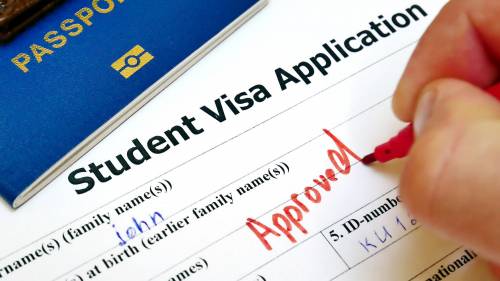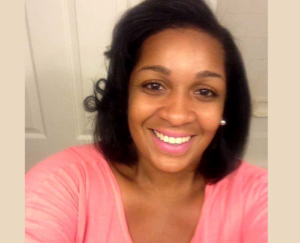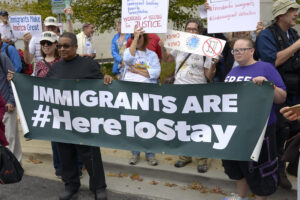
By Greer Jackson
Whether by design, coincidence or indifference, the Trump administration’s proposal to tighten restrictions on international students could extract greater tolls on those from Africa, whose numbers are among the least contributing to what the administration asserts is a national security threat, critics of the plan say.
Countries on the continent account for more than half of those whose students would be granted less time to study in the United States, because the plan would place a numerical cap on the percentage of persons from individual nations who stay longer than their visas permit.
African nations have some of the highest rates of those who overstay, but lower numbers. In 2017, for instance, tiny Djibouti in East Africa had an overstay rate four times the proposed limit of 10 percent; Canada’s rate was only about 1 percent. Yet, the number of Djiboutians who overstayed was 416, compared with 90,707 Canadians.
Nigeria sends more students here than any nation in Africa. Its rate for all overstays was narrowly above 10 percent; its number of overstays: 19,046.
The Department of Homeland Security (DHS) said such a policy is necessary to protect Americans from domestic terrorism, but hardly any African nationals have been accused or convicted of such crimes over the last half-century.
“We already vet, extraordinarily thoroughly, immigrants from countries on the list this policy targets,” Elizabeth Neumann, a former assistant secretary of counterterrorism and threat prevention at DHS, wrote in a recent opinion article in the Austin American-Statesman.
“If these students pass inspection to the point of being approved for a visa, why allow them to stay only two years? Punishing students—young people with the potential to bring their innovation and success to the U.S.—with no national security justification is shameful,” Neumann wrote.
“The overall tone of the proposed rules sends a chilling message to current and prospective international students that we are no longer a welcoming nation,” Stephen Yale-Loehr, a Cornell University law professor, told USA Today. “It says we’re more focused on national security threats and that we suspect they could be coming here to do harm rather than to help the U.S.”
Critics also have raised concerns about the financial impact, particularly on colleges and universities. By one estimate, international students contributed $41 billion to the U.S. economy and supported the equivalent of nearly a half million jobs in the 2018-2019 school year.
Nigerian students alone spent $514 million. “The figure outstrips the economic impact of students from France, Germany and the United Kingdom,” Los Angeles-based African Warrior magazine reported.
“It appears to be that on every single level of the [immigration] process, whether it be for study permits or when it comes to work permits, or even people seeking asylum, the Trump administration is making it logistically difficult and less appealing at every stage,” Alexandra Lamarche, senior advocate for West and Central Africa at Refugees International, said in an interview.
“This is undoubtedly a policy that is designed to discriminate against Africans,” Matthew Page, a fellow at the Center for Democracy and Development, told Quartz. “Yes, overstays are an issue—but the huge cultural, diplomatic, economic and personal downsides of this plan are being ignored.”
DHS outlined the proposal in a 256-page document in late September, saying the new rules were necessary in order to “vigorously enforce our nation’s immigration laws, protect the integrity of these nonimmigrant programs, and properly detect national security concerns.”
There was a month-long period for public comment that closed at the end of October. A month later, the administration still had not said what changes it might implement. Of the 59 countries that would be covered by the new rule, 36 are in Africa, while only 145,000 of the estimated 1.1 million foreign students here (about 1 in every 7) are from the continent.
The proposal centers on visas—legal documents nations issue to grant persons from other countries permission to be in the host nation for a specific purpose and for a specific period of time. Visas, along with a passport, generally are required to enter a country legally.
In July, as universities were announcing plans to conduct more fall classes online because of the pandemic, the administration proposed not granting visas to international students who did not attend at least some classes on campus.
That plan was swiftly abandoned in the face of legal challenges from educational institutions who feared financial losses, and companies who said such a policy would hinder efforts to attract and retain hard-to-come-by workers.
The new rules would set stricter guidelines for the initial period some visas would be valid, and give the government more discretion in deciding whether to grant extensions.
There were about 36,000 students from nations in Sub-Saharan Africa in the United States last year, and the largest group, 16,000, was Nigerians. About one third of the Nigerians were pursing undergraduate degrees, another third was in master’s programs, and most of the rest evenly divided between doctoral and associate degree studies.
Enrollment of first-time foreign students in U.S. colleges and universities was already declining when Trump came into office in 2017. While the number was rising around the world between 2001 and last year, the U.S. share of those students slipped from 28 percent in 2001 to 21 percent in 2019, the Associated Press reported.
Most first-time college goers don’t earn bachelor’s degrees in fewer than five years, and doctoral programs can take more than four years to complete.
The Trump administration has targeted Muslim immigrants as potential terrorist threats, and Islamist violence in Nigeria has driven more than two million people from their homes in that West African nation.
But there was only a single Nigerian national on a list of foreign-born persons who had committed an attack or were convicted of trying to commit terrorist attacks in the United States between 1975 and 2015.
At the core of this debate over international students is the administration’s fundamental assertion that there are too many persons in the country who shouldn’t be, and a relatively large segment of that population of 11 million illegal immigrants is those who may have come legally, but have stayed here longer than they were supposed to stay.
However, that rationale “does not take into account the fact that students may stay legally, such as by getting a green card through family or work, and DHS may be missing many people due to inadequate systems or for other reasons,” immigration lawyer Dan Berger told Forbes.
Moreover, for most of the past decade, immigrants who enter without permission are not the bigger part of the problem.
Those “who overstay their visas add to the U.S. undocumented population at a higher rate than border crossers. This is not a blip, but a trend which has become the norm,” Donald Kerwin, executive director of the Center for Migration Studies, said in a statement early last year.
Samantha Power, who served as the U.S. Ambassador to the United Nations in the Obama administration, said the United States also reaps diplomatic gains from foreign nationals who study here.
“Twenty percent of African leaders today have been educated in some form at an American university,” she said in a television interview on MSNBC. “That’s a gift that keeps on giving well and apart from the financial benefits and the soft power benefits … to showing what we still have to offer.”
Those leaders include presidents or prime ministers of Ivory Coast, Liberia, Namibia, Sierra Leone and Uganda. “What a way to showcase what America still has to offer in terms of intellectual capital,” Power said, “than to welcome back international students.”


